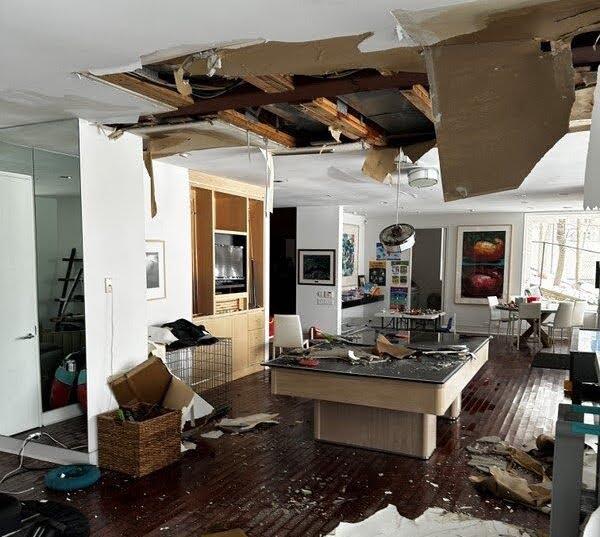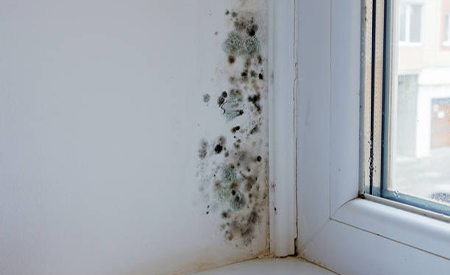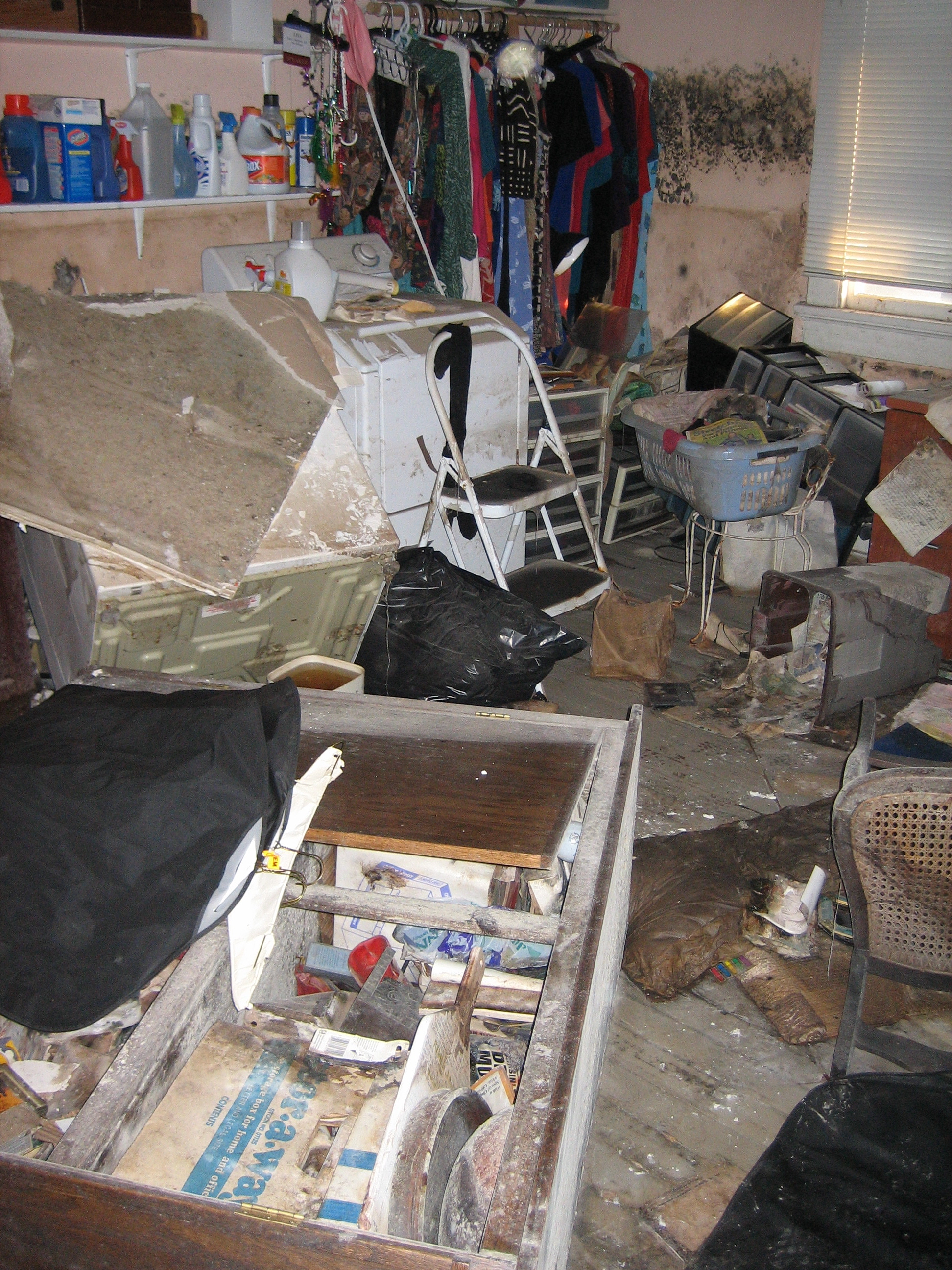Immediate Water Extraction Services to Prevent Structural Damage
Immediate Water Extraction Services to Prevent Structural Damage
Blog Article
The Process of Water Damages Clean-up: Ensuring Your Home Is Recovered Successfully
Water damage can be a complicated challenge for property owners, necessitating a organized and meticulous cleanup process to recover safety and functionality. An extensive analysis is important to recognize the level of the damage and figure out the proper remediation procedures. Following this, reliable water removal strategies play an essential duty in reducing further damage. The nuances of drying out, disinfecting, and ultimate remediation are equally crucial and typically ignored. Understanding these stages can make a considerable difference in the result of your home's restoration, triggering a closer take a look at what each step involves.
Analyzing the Damage
Upon finding water damage, the primary step is to extensively examine the degree of the impact. This preliminary assessment is important, as it aids determine the necessary actions for effective cleaning and restoration. Begin by checking the affected locations, consisting of walls, ceilings, floors, and individual belongings, to determine the source of the water breach, whether from flooding, leaks, or condensation.
Recording the damage is crucial for both insurance coverage claims and planning reconstruction initiatives - damage restoration services. Usage pictures and composed notes to catch the seriousness of the damages, keeping in mind any kind of afflicted architectural components and products. Pay unique focus to areas that may not be right away visible, such as behind walls and under carpets, as concealed wetness can cause further complications, including mold development
Additionally, examine the timeline of the water exposure. Ultimately, a detailed evaluation lays the groundwork for a successful water damage cleaning procedure, making sure that all affected locations are attended to effectively and extensively.
Water Removal Techniques

Experts usually utilize completely submersible pumps for larger volumes of water, which can quickly ease flooding in cellars or other affected areas. For smaller sized amounts, wet/dry vacuums are typically utilized to remove recurring wetness from carpetings and tough surfaces. Furthermore, utilizing mobile extractors permits targeted elimination in confined areas or locations with fragile products.
In instances of contaminated water, such as sewer or floodwater, progressed extraction techniques may include using biohazard equipment to make sure security and compliance with wellness laws. High-powered removal tools are important in minimizing water retention in architectural products, which can lead to mold and mildew growth and architectural degeneration otherwise dealt with quickly.
Ultimately, the effectiveness of water extraction techniques plays a critical function in the overall success of the water damage clean-up process, laying the groundwork for succeeding restoration initiatives.
Drying and Dehumidification
Once standing water has been successfully removed, the next crucial stage in the water damage cleaning procedure is drying out and dehumidification. This step is important to stop additional damage and mold development, which can occur within 24 to 48 hours in wet environments.
To attain effective drying, specific tools such as industrial-grade air moving companies and dehumidifiers is used. Air movers circulate air throughout damp surfaces, boosting dissipation rates, while dehumidifiers reduce moisture degrees airborne, advertising a favorable atmosphere for drying. The combination of these devices ensures that dampness is attracted out from floorings, home furnishings, and wall surfaces, allowing them to dry completely.
It is very important to keep an eye on the drying procedure closely. Specialists usually utilize dampness meters to analyze the wetness content in various materials, guaranteeing that all influenced locations reach acceptable dry skin degrees. This thorough method helps to avoid surprise dampness pockets that can result in structural damage or undesirable mold recommended you read and mildew development.

Cleaning and Sanitizing
After the drying out and dehumidification stage is complete, the following important action in water damage cleaning is cleaning and disinfecting the affected areas. This procedure is vital to stop the development of mold, microorganisms, and various other virus that prosper click this link in moist settings.
The cleaning stage typically entails removing any kind of particles, dust, and impurities from surfaces making use of specialized cleaning agents. For hard surface areas, a combination of soap and water or commercial cleaning items is usually utilized. Soft products, such as upholstery and carpetings, may require a lot more substantial cleaning approaches, consisting of steam cleansing or deep extraction methods, to guarantee comprehensive hygiene.

Sterilizing adheres to cleaning, check this site out using EPA-approved anti-bacterials to get rid of hazardous bacteria. This step is necessary, specifically in areas that may have come right into contact with floodwaters or sewage, as these resources can pose major health and wellness threats.
In addition, it is essential to address any kind of staying odors, which may require the use of smell neutralizers or advanced methods like ozone therapy. Correct cleansing and sanitizing not only restore the safety and security and hygiene of your home however likewise lay the groundwork for successful repair and repair services in succeeding phases of the water damages cleanup process.
Reconstruction and Fixings

When the analysis is total, restoration initiatives can start. Additionally, floor covering might require similar attention, depending on the degree of water exposure.
It is critical to involve knowledgeable restoration professionals during this process, as they possess the experience to take care of intricate repair services efficiently. Moreover, they can assist minimize prospective future problems, such as mold and mildew development or architectural instability, thus guaranteeing a habitable and safe living environment. Inevitably, efficient remediation and repair work restore the home's honesty and enhance its total value.
Verdict
Finally, the process of water damages clean-up is important for restoring a home to its pre-damage condition. Each phase, from analyzing the damage to applying effective water extraction techniques, followed by thorough drying, sanitizing, and needed repairs, plays an important function in making sure security and conformity with structure criteria. Reliable execution of these steps not just mitigates prompt damage however additionally boosts the lasting integrity and value of the building.
Water damages can be a difficult obstacle for property owners, demanding a careful and structured cleaning process to restore safety and functionality. Ultimately, a thorough analysis lays the foundation for an effective water damage cleaning procedure, making certain that all influenced areas are resolved successfully and thoroughly.
Reliable water extraction methods are vital in mitigating damages and stopping additional difficulties adhering to a water intrusion event.In final thought, the procedure of water damage cleanup is essential for restoring a home to its pre-damage condition. Each stage, from evaluating the damage to applying effective water extraction strategies, followed by comprehensive drying out, sanitizing, and needed repairs, plays a crucial role in ensuring safety and compliance with building criteria.
Report this page